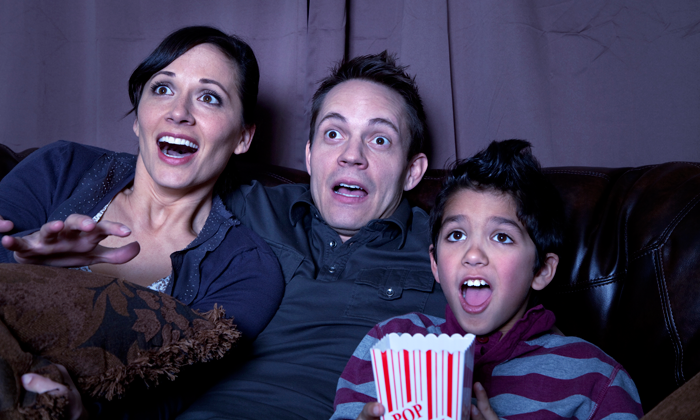Effective and honest communication is a key to health for any family, regardless of whether adoption played a role in forming the family. For most topics, parents are able to rely on the models they had growing up—your parents, grandparents, or teachers talking to you about manners, dating, finances, filling up the car with gas, curfew, and using deodorant. For adoption-related topics, though, parents may not have previous conversations from which to draw. So how can you initiate these important conversations?
We learn many of our lessons from stories, and films are some of the most accessible, entertaining, and sharable stories in our culture. I wrote Adoption at the Movies (based on my blog of the same name) to help families use films as easily accessible bridges into previously hard-to-reach, important adoption conversations.
Using Movies to Start Conversations
Movies can help in several ways. When a film is about adoption, it can be easy for families to draw parallels between their own experiences and those of the characters on screen. Intentionally choosing films that portray characters going through similar situations or exhibiting feelings similar to your children’s can open the door to conversations about those experiences and emotions. They can help to normalize adoption and other aspects of the adoption experience by subtly reinforcing for a child the fact that they are not alone in their experience.
Some movies are not directly about adoption, but feature adopted characters or adoptive families. Many more movies feature children who have been separated from their first parents or from siblings.
Many of these films show the characters experiencing and expressing their grief and working towards some form of resolution. These films can be very helpful for parents—asking how a certain character felt at different points in the film and then validating your child’s responses can be a very positive way to invite them to talk openly about their feelings. Sometimes kids aren’t sure if they’re allowed to express unhappy feelings about anything connected to their adoption, and movies like these are a way for you to say, “You’re not the only one with these feelings; it’s OK to talk about them, and in talking about them you will probably eventually find ways to feel better.”
Both direct and indirect questions can be helpful. The conversations can be initiated by asking questions like, “How would you have felt in that situation?” or, “What do you think was right or unfair about the situation that these characters were in?” These conversations can feel natural, since they’re just part of talking about a film that you enjoyed together. They can make the emotionally laden adoption topics seem less threatening by presenting them in the context of a normal, relaxed conversation about a shared pleasant experience.
Selected Movies with Adoption Themes
It is important to choose films carefully. Sometimes movies that are directly about adoption portray adoption, or some parts of the process, in frightening or misleading ways. These can introduce false ideas about adoption and they can sometimes function as emotional triggers, causing kids to experience unpleasant, unexpected emotional reactions to the films. Many adoptive parents have been surprised by their children’s reactions to certain movies. Perhaps just as often, parents are surprised by the contents of films that they had expected to be harmless; their children’s reactions aren’t surprising in light of what the movie portrayed, it’s just that the movie caught the family off-guard.
Here, you’ll find a selection of movies that lend themselves to conversations about adoption, while also being enjoyable to watch. For each, you’ll find a plot summary, including a discussion of how the film is relevant to adoption, strong points, challenging scenes, and questions to start conversations.
When you talk with your kids after the movies, try to convey an atmosphere in which it is safe for them to think and say anything. By being non-defensive and open to their words, you’ll help them express their feelings and process their thoughts; you’ll also have a good chance of having them share their thoughts and thought processes with you as you listen. Mister Rogers famously said, “Anything that’s human is mentionable, and anything that is mentionable can be more manageable. When we can talk about our feelings, they become less overwhelming, less upsetting, and less scary.” By giving your children (and your co-parent or yourself) the gift of an open ear, you are helping even their uncomfortable thoughts and feelings to be mentionable and therefore manageable.
Now, let’s get the movies rolling!
RATED G
Meet the Robinsons (2007)
(Click to read the Meet the Robinsons review and discussion questions)
The Tigger Movie (2000)
(Click to read the The Tigger Movie review and discussion questions)
RATED PG
Annie (2014)
(Click to read the Annie review and discussion questions)
Big Hero 6 (2014)
(Click to read the Big Hero 6 review and discussion questions)
The Boxtrolls (2014)
(Click to read the The Boxtrolls review and discussion questions)
Despicable Me (2010)
(Click to read the Despicable Me review and discussion questions)
Despicable Me 2 (2013)
(Click to read the Despicable Me 2 review and discussion questions)
Earth to Echo (2014)
(Click to read the Earth to Echo review and discussion questions)
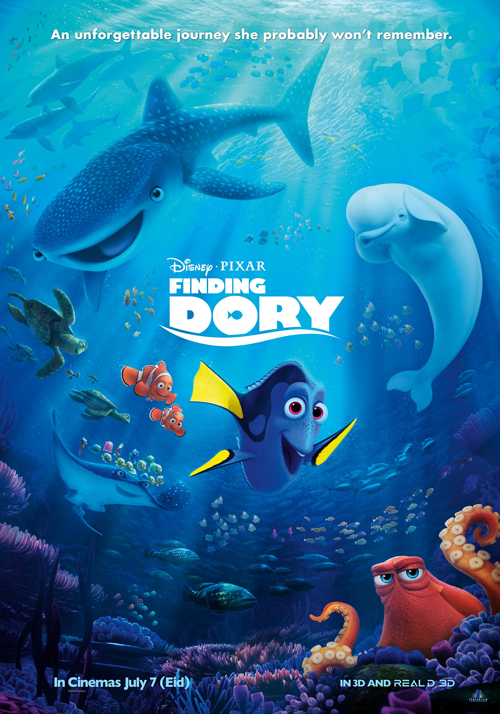 Finding Dory (2016)
Finding Dory (2016)
A year after helping the clownfish Marlin rescue his son Nemo, the forgetful blue tang fish Dory starts remembering flashes of her own childhood, and remembers that she was swept away from her parents (this scene might be difficult for some young kids). Dory becomes determined to find her parents, but her quest will be very challenging because of her pervasive short-term memory loss. Eventually, she does find her parents, who have been steadfastly working to find her ever since they were separated. She lets them know that Marlin and Nemo have become her family as well, and together they craft a new understanding of family that includes everyone who has come to love and care for Dory.
One fish challenges Dory, asking how she can know that she has a family if she has memory loss. She replies that she must have come from somewhere, so of course she has parents, and even if she forgets their names or faces, they do not stop existing. That’s an important concept for adoption—an adopted person’s birth parents don’t stop existing just because they aren’t mentioned in conversation, and the fact that they do exist does not make the adoptive family any less important to the child.
Discussion Questions for Finding Dory
- Now that Dory has found her parents, Charlie and Jenny, are Marlin and Nemo still her family too?
- What do you think Marlin and Nemo felt like as they were helping Dory find her parents?
- Do you ever miss your first family? If you could choose who you saw every day, who would you see? How do you feel when your life doesn’t exactly match what your dream life would look like?
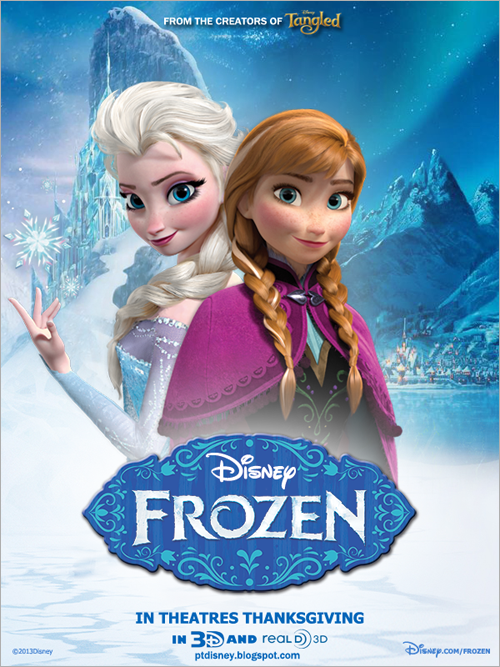 Frozen (2013)
Frozen (2013)
Princess Elsa has magical powers over wintery forces. After she accidentally hurts her sister, Princess Anna, her family decides to hide her powers. The memory is removed from Anna’s mind, and she grows up not understanding why Elsa has become so distant from her. When their parents die at sea, the sisters live out their teenage years as recluses in the castle.
The most commercially successful animated film of all time doesn’t contain an adoption storyline but, like in so many Disney movies, Elsa and Anna grow up having experienced the loss of their parents. Elsa has been told by her family to keep an aspect of her identity a secret, and secrecy is one of the main opponents of healthy communication in adoptive families. Anna and Elsa are driven apart not by the content of the secret, but by the simple fact of secrecy. The film shows that relationships can be restored when built upon truth, and healthily defines love as prioritizing the other person’s needs over your own.
Discussion Questions for Frozen
- Elsa’s parents tried to keep her powers a secret so that Anna wouldn’t be hurt, but it didn’t seem to work. Anna was still hurt, but in a different way. What might have worked better?
- What’s the difference between secrecy and confidentiality?
- Do you feel as if your parents want you to keep any secrets? How does it feel? (This would be a good time to assure your kids that they do not have to keep secrets; this can tie in with the difference between confidentiality and secrecy.)
Kung Fu Panda (2008)
(Click to read the Kung Fu Panda review and discussion questions)
Kung Fu Panda 2 (2011)
(Click to read the Kung Fu Panda 2 review and discussion questions)
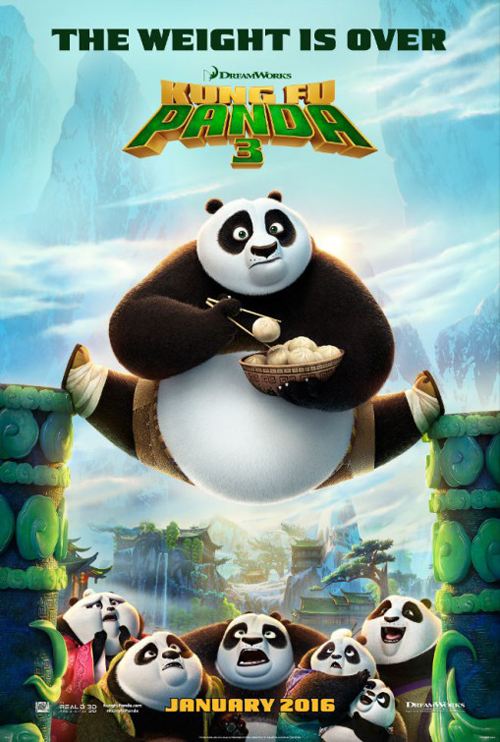 Kung Fu Panda 3 (2016)
Kung Fu Panda 3 (2016)
The third film in this series continues Po the panda’s discovery of his adoption story. His birth father, Li Shen, reappears in his life and brings Po to a secret panda village where he can learn about panda culture and how to harness the power of Chi.
Po is awestruck and overjoyed to meet Li Shen. However, his adoptive father, a goose named Mr. Ping, is initially jealous and suspicious. The film does not shy away from the awkwardness and mistrust that Mr. Ping and Li Shen initially feel towards each other, but also shows them working through that uncomfortable start to a place of trusting and humble relationship. Together, they realize that they both love Po, and that neither one replaces the other.
While Po’s two fathers learn what it will mean to share Po, Po learns his birth name and what it means to be a panda. He also shares his Kung Fu and noodle shop cultures with the pandas, integrating all aspects of his identity into a cohesive whole. Kung Fu Panda 3 finishes one of the healthiest cinematic portrayals of a newly opened adoption.
Discussion Questions for Kung Fu Panda 3
- What do you think Po should call Li Shen? What should he call Mr. Ping? Dopes it matter whether he uses the same name for both of them?
- What do you think it would be like to meet your birth family? How would you like your adoptive family and your birth family to treat each other?
- Is it more important to find out what your roots are or to function as the person you are today, or are they both important? How does finding out your roots help you be who you are?
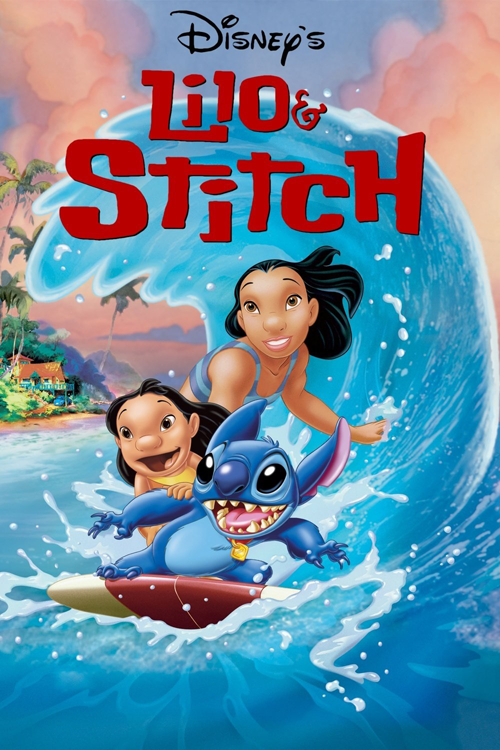 Lilo and Stitch (2002)
Lilo and Stitch (2002)
Since their parents died in a car crash, Nani has tried to be a parent to her younger sister, Lilo, but a social worker has started warning her that he will remove Lilo from her care if she does not make significant improvements. In an attempt to help Lilo, Nani takes her to adopt a dog from an animal shelter. The “dog” turns out to be Experiment 626, who is trying to escape recapture by Dr. Jumba and Agent Pleakley of the Intergalactic Federation.
Lilo names 626 “Stitch,” teaches him to behave, and introduces him to the concept of Ohana, or family, which means that everyone will be cared for and remembered. Lilo struggles with the losses she has experienced and her desire for stability and family is evident throughout the film. In the end, the social worker decides to let Lilo stay with Nani, and Stitch is allowed to stay with both of them. This film could be especially powerful for children who remember being taken into foster care, and for families formed through kinship adoption.
Discussion Questions for Lilo and Stitch
- What do you think family means?
- If Lilo had been taken from Nani, how would her life have been different? Do you think they would have wanted to see each other still?
- Now that Nani is being Lilo’s mom, is she still her sister? What parts of that dual relationship are hard? Which parts are helpful?
Mr. Peabody & Sherman (2014)
(Click to read the Mr. Peabody & Sherman review and discussion questions)
Paddington (2014)
(Click to read the Paddington review and discussion questions)
RATED PG-13
 Creed (2015)
Creed (2015)
Mary Anne Creed finds Donnie Johnson serving time at a youth detention center and offers to let him live with her. Donnie has never known who his father is, and Mary Anne reveals to him that his father was Mary Anne’s late husband, boxing champion Apollo Creed, via an extramarital affair. Donnie finds a patient, understanding, supportive family in Mary Anne and an old friend of his father’s, Rocky.
As an adult, Donnie sets off to become a professional boxer, like the famous father he never knew. Mary Anne, who does not want to see Donnie get injured in a boxing match, reminds him that, although he is Apollo’s son, he does not have to follow in all of Apollo’s footsteps. Donnie works to embrace his father’s history while also creating his own legacy and identity.
Discussion Questions for Creed
- How much of a person’s future is dictated by their family’s history? How much of your life has been influenced by people you have never met?
- How far back can you trace your birth and adoptive family trees? Which people who aren’t part of either of your family trees are still “like family” to you?
- What defines a “real family”? Is there value to the term, or would another term or set of terms be better?
Man of Steel (2013)
(Click to read the Man of Steel review and discussion questions)
Teenage Mutant Ninja Turtles (2014)
(Click to read the Teenage Mutant Ninja Turtles review and discussion questions)
MOVIES FOR PARENTS
Belle (2013)
(Click to read the Belle review and discussion questions)
Lion (2016)
(Click to read the Lion review and discussion questions)
Martian Child (2007)
(Click to read the Martian Child review and discussion questions)
Moonrise Kingdom (2012)
(Click to read the Moonrise Kingdom review and discussion questions)
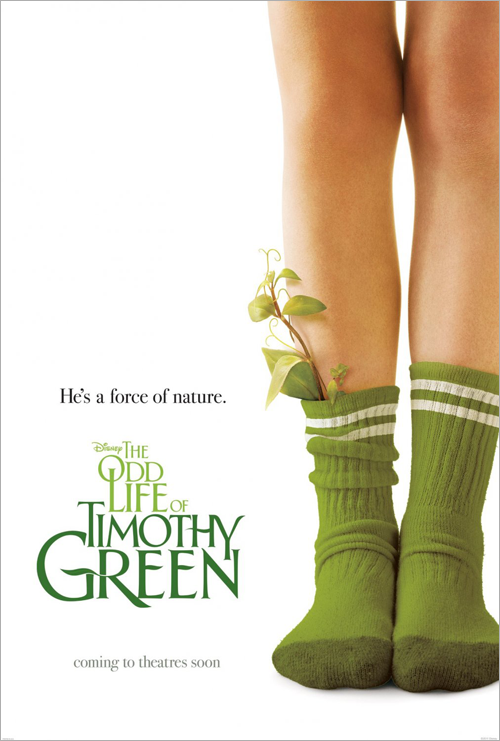 The Odd Life of Timothy Green (2012)
The Odd Life of Timothy Green (2012)
James and Cynthia Green have struggled through years of infertility treatments. After being told by their fertility doctor that they will not be able to become parents, they spend one evening daydreaming about what their child would have been like. Together, they write out their dreams on pieces of paper and then bury those papers in the yard. They believe they’ve closed this chapter of their life, and are resigned to childlessness, but a magical storm causes a child to grow in the ground from the dreams they’ve written down. Timothy is everything they hoped for—loving, brave, and honest.
The Greens are fearful that the people in their family and community will not understand the unique way in which Timothy came to them, and tell him to keep his origins a secret. He does, but eventually finds it very freeing to let a friend into his secret. For a while, he keeps a secret from his parents—that he can only stay for a little while. Eventually, Timothy leaves, and the Greens decide to pursue adoption. The Odd Life of Timothy Green shines in its early moments as James and Cynthia process their infertility together and face their grief head-on, and could be very helpful to parents
Discussion Questions for The Odd Life of Timothy Green
- If infertility has been part of your journey to adoption, how have you dealt with your feelings about it? Have they been feelings of loss, or are they more feelings of sadness, envy, or anger? What do you imagine a child born to you would have been like?
- The Greens encourage Timothy to keep his story to himself because “people might not understand.” How could they have approached it is they were using confidentiality rather than secrecy?
- How much pressure do you feel to create a perfect childhood for your child? Is it realistic and reasonable? Is it better to provide a childhood free of sadness or to help a child lean to deal with sadness? Why?
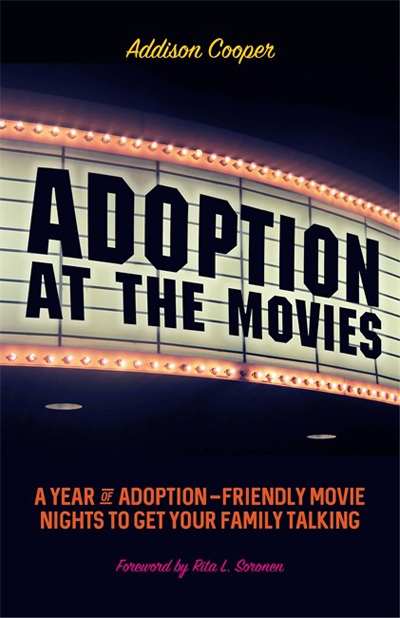 ADDISON COOPER, LCSW, is a therapist with a focus on foster care and adoption. He reviews movies and books with adoption themes at AdoptionAtTheMovies.com and is the author of Adoption at the Movies, from which this piece was adapted. © 2017 Jessica Kingsley Publishers. Reprinted with permission. This article may not be reproduced for any other use without permission.
ADDISON COOPER, LCSW, is a therapist with a focus on foster care and adoption. He reviews movies and books with adoption themes at AdoptionAtTheMovies.com and is the author of Adoption at the Movies, from which this piece was adapted. © 2017 Jessica Kingsley Publishers. Reprinted with permission. This article may not be reproduced for any other use without permission.
